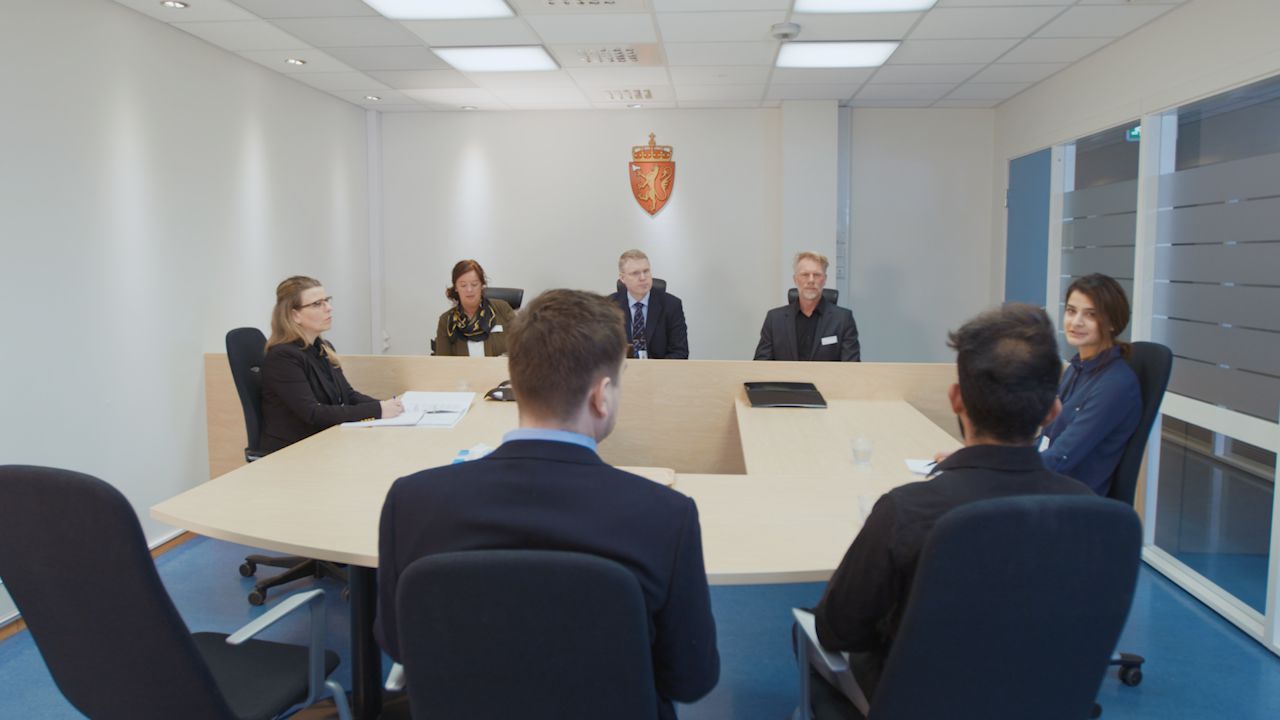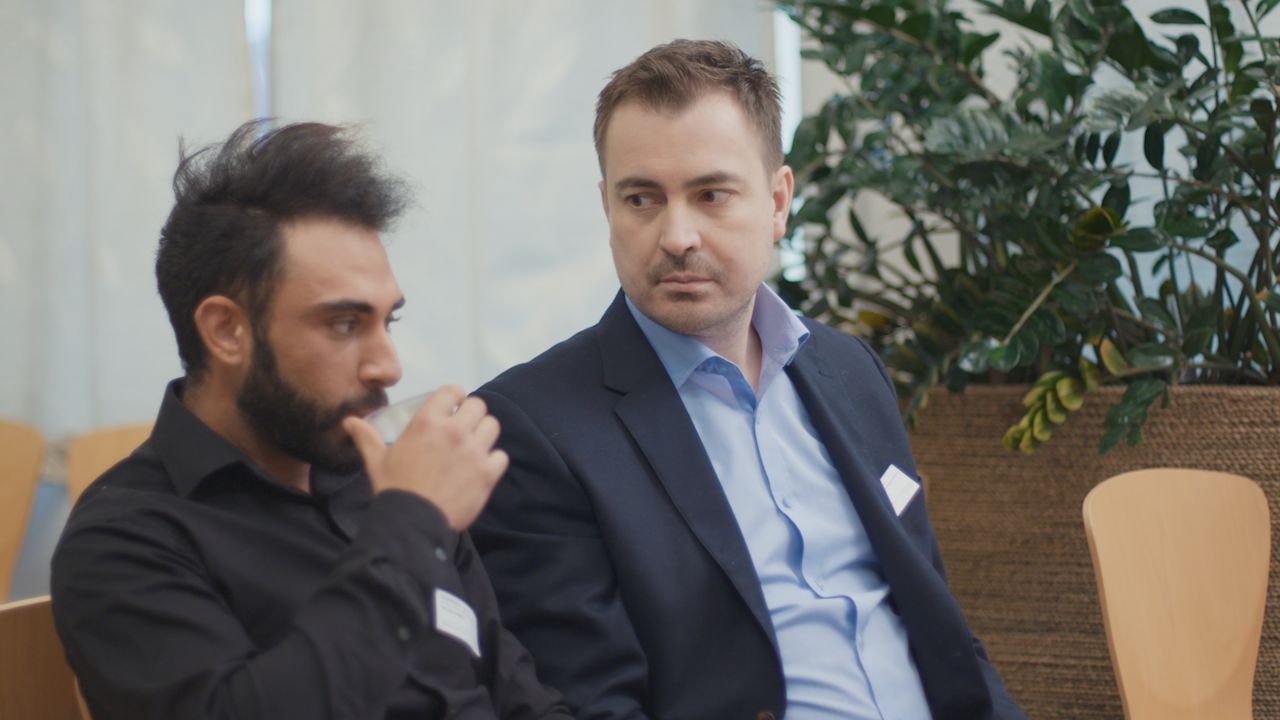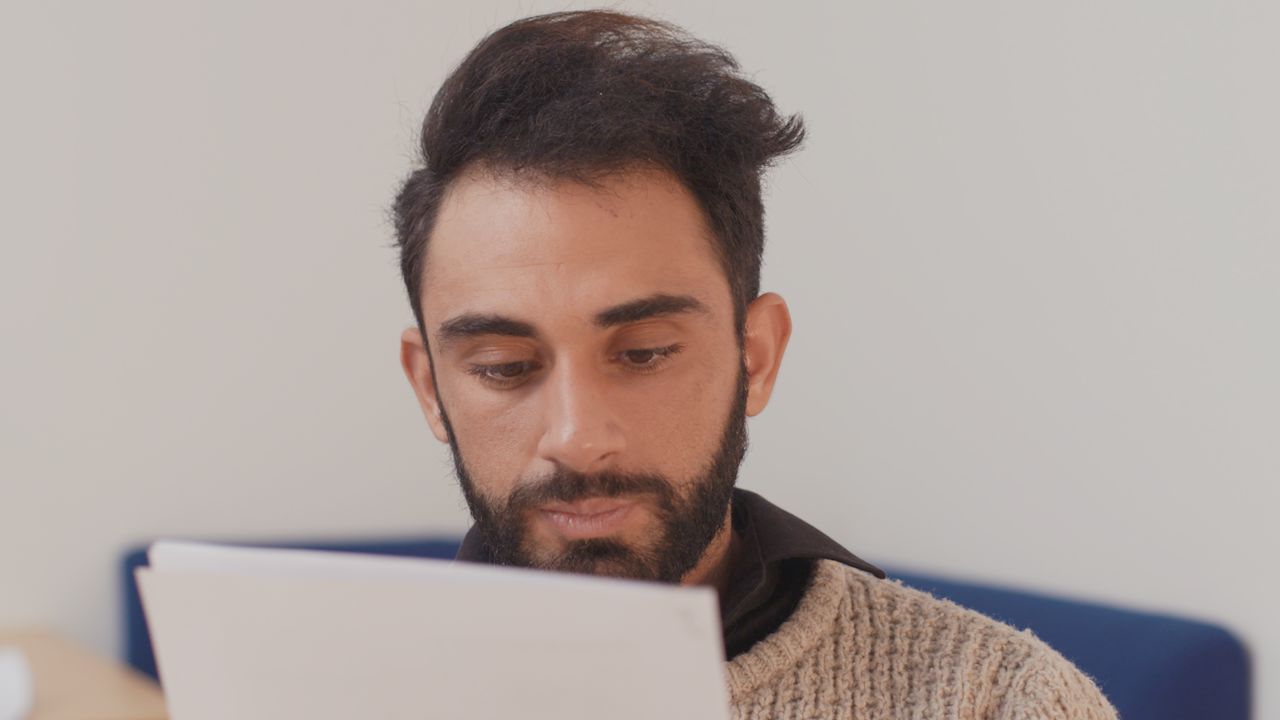See what happens at a board hearing and find out what is expected of you when you are summoned to attend one.
See what happens at board hearings
No video?
Read the script here
Welcome to UNE, the Norwegian Immigration Appeals Board. When you appeal a decision from UDI, the Norwegian Directorate of Immigration, the case will be sent to us for a second assessment

In some cases, we will need more information about you. We will then call you in to an appeals board hearing. This is your chance to provide further information about your case.

Most appeals board hearings are convened in cases that concern protection. However, an appeals board hearing is not to be considered a second asylum interview. The purpose of a board hearing is to get answers to unanswered questions. Therefore, it is important that you tell the truth in order to shed as much light as possible on your case.

Several people will attend the appeals board hearing.

If you have a lawyer, he or she will be seated next to you. The lawyer's job is to ensure that your rights are protected.

The Board Leader will be seated on the opposite side of the table. The Board Leader has the same professional background as a court judge.

The Board Leader chairs the meeting, together with two lay Board members. These three make up the Board that will decide the outcome of your case. The decision will be taken based on the information you have given both prior to and during the board hearing.

A case officer prepares your case and may ask questions during the board hearing, but will not be involved in the final decision.

In some cases, there will also be a country adviser present in the meeting. The country adviser is there to provide the Board with in-depth knowledge of your country of origin, but will not be involved in the actual decision making process.

An interpreter will translate everything being said in the meeting. The interpreter has been approved by The Norwegian Directorate of Immigration. The interpreter, along with everyone present in the board hearing, is bound by a duty of confidentiality.

It is punishable by law to break this confidentiality. You can therefore speak freely without fear of others gaining access to sensitive information.

The hearing begins with the Board leader introducing the participants, and explaining how the meeting will proceed. You will then be given the opportunity to answer questions that the Board members believe are relevant to your case. These questions may be about your identity, background, family and your experiences in your home country.

It is important that you provide the Board with accurate information. It is punishable by law to give information you know to be false.

A board hearing may last all day. However, there will be time for several breaks.

At the end of the meeting, your lawyer will make a short, concluding statement. You will also have the opportunity to make a final statement to the appeals board.

When the meeting is finished, the case officer will give a summary of the meeting to the Board.

When the case officer has left the room, the Board will make a final decision on your case. You will be notified in writing of the decision approximately three weeks later.

The decision will be sent to your lawyer, or directly to you if you do not have a lawyer.

Read more about appeals board hearings at une.no










